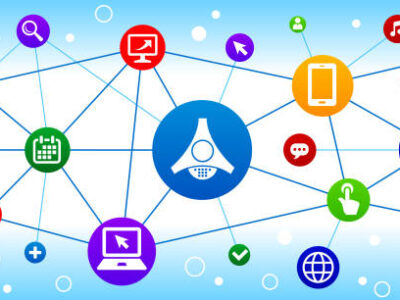Blockchain technology is gaining global attention. It started as the backbone of cryptocurrencies like Bitcoin and Ethereum. However, its use is growing far beyond digital coins. Blockchain can transform several industries. It offers a clear, dispersed, safe approach to handling data. In this guide, we will explore how blockchain can impact different sectors and what the future holds for this technology.
How Will Blockchain Technology Impact Various Industries?
Blockchain technology will transform many aspects of our digital and physical worlds. Its features, such as decentralization, transparency, and security, make it attractive to various industries. These industries are now exploring how to integrate blockchain into their operations. Below are some key sectors that blockchain is expected to reshape.
Finance Industry
The finance industry was one of the first to adopt blockchain. Faster, less expensive transactions and more security are promised by blockchain systems. Traditional banking systems are often slow and involve multiple intermediaries. With blockchain, financial transactions can happen instantly, without the need for third parties.
Blockchain also makes cross-border payments easier. International money transfers can take days, but blockchain can reduce this to minutes. Furthermore, blockchain-based smart contracts automate payments. They ensure that agreements are fulfilled without the need for lawyers or banks. Many experts believe that blockchain could reduce fraud in the financial sector. Since blockchain is secure and tamper-resistant, it makes fraud harder to commit.
Healthcare
Data management has always been difficult for the healthcare sector. Blockchain can offer solutions to improve healthcare. Typically, patient records are scattered among several systems. This makes it hard for doctors to access complete health data. Authorized medical staff members can access a unified record created by blockchain for every patient.
Moreover, blockchain can enhance drug supply chain transparency. Fake drugs are a significant worldwide challenge. Blockchain can help track medications from the manufacturer to the patient. This can reduce the risk of fake drugs entering the market. Additionally, blockchain can be used for clinical trials, ensuring that research data is accurate and verifiable.
Supply Chain
Supply chain management is another aspect that can be gained from blockchain. Today’s supply chains are complex, involving many suppliers, manufacturers, and logistics companies. Following items from manufacture to delivery can be challenging. Blockchain can offer end-to-end visibility of products as they move through the supply chain.
With blockchain, businesses can monitor each step of the process. For example, if a product is delayed, they can find out where it is stuck. This can minimize errors and enhance efficiency. Blockchain also promotes openness, which enables companies to guarantee ethical procurement of their goods.
Gaming Industry
Blockchain is gaining significant traction in the gaming world. Ownership of in-game objects is one of the main gaming problems. Currently, players do not truly own the virtual items they buy. With blockchain, players can have full ownership of their digital assets.
Furthermore, more online gambling casinos are embracing blockchain and the convenience of crypto banking options. Real money online casinos in Canada and other countries such as the UK now allow players to fund their accounts using cryptos such as Bitcoin and Ethereum. As such, players can access a variety of casino games with BTC and enjoy fast payouts. Thanks to blockchain, these crypto transactions are processed quickly, safely, and anonymously.
Real Estate
The real estate business is well-known for its extensive documentation and convoluted processes. Buying and selling property can take weeks or even months. Blockchain will certainly simplify and accelerate these transactions. By using blockchain, real estate contracts and property records can be stored digitally. This would eliminate the need for middlemen like real estate agents or lawyers.
Blockchain can also reduce fraud in real estate. Property titles can be verified on the blockchain, making it impossible for someone to fake ownership. Additionally, smart contracts can automatically execute real estate transactions, reducing the time and cost involved in closing a deal.
What Are the Key Predictions for Blockchain Technology?
As blockchain continues to evolve, several key trends and predictions have emerged.
Wider Adoption Across Industries
Blockchain is expected to spread to more industries. While finance, healthcare, and supply chain management are leading the way, other sectors like education, insurance, and legal services are exploring blockchain use cases. In the future, blockchain might become a standard technology for many businesses.
Improved Scalability
One of the challenges facing blockchain is scalability. Current blockchain networks can be slow and costly when dealing with a large number of transactions. However, developers are working on solutions to make blockchain faster and more efficient. These improvements could make blockchain suitable for large-scale applications.
Increased Government Regulation
As blockchain grows, governments are likely to introduce more regulations. Some countries are already creating legal frameworks for blockchain. These regulations aim to protect consumers and prevent illegal activities like money laundering. While regulation could slow down innovation, it is also expected to bring more trust to the technology.
Integration with Other Technologies
Blockchain will likely integrate with other technologies, such as the Internet of Things (IoT) and artificial intelligence (AI). For instance, IoT devices can adopt blockchain to securely share data without the need for intermediaries. AI could also benefit from blockchain by ensuring that the data used in AI models is accurate and trustworthy.
More Decentralized Finance (DeFi) Applications
Decentralized finance (DeFi) is a new trend that utilizes blockchain to offer financial services without intermediaries. More DeFi apps should be expected in the next years. They include insurance services, lending platforms, and decentralized exchanges. DeFi can democratize finance by allowing people more control over their assets.
Conclusion
The future of blockchain technology looks promising. Its ability to change sectors like healthcare, finance, and real estate is immense. As time goes by and technology changes, it will become more exploitable and widely adopted. Blockchain can help to build a world more transparent, safe, and efficient. While there are challenges ahead, the benefits of blockchain are undeniable. Watch out for this technology as it continues to evolve and shape the future.
If you want morе еxciting contеnt visit. Globallyviz.com














Comments